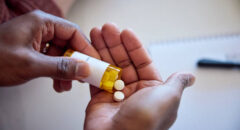
Last month, the World Health Organization announced that the pandemic is no longer a public emergency. However, although cases have decreased and people have tossed their masks to the side, COVID hasn’t disappeared altogether.
Since the end of the COVID emergency, testing for COVID-19 has been less frequently reported making it harder to tell how much of the virus is circulating at one time.
This has alarmed many immunocompromised individuals who remain at high risk of developing severe complications even after vaccination and previous infections.
The good news, however, is that we know how the virus is spread. Therefore, those who are at the highest risk for complications and want to protect themselves and their loved ones from COVID can take the appropriate measures to prevent severe disease and death.
Here are ways you can amp up your defense as an immunocompromised individual.
1. Get vaccinated.
If you haven’t gotten vaccinated yet, it is never too late to do so. Medical providers and pharmacies are still giving vaccines.
2. Get a second dose of the bivalent vaccine.
If you are 65 and older, you are eligible for a second dose of the bivalent vaccine. As an immunocompromised individual, you can really benefit from the extra protection of these vaccines, which are effective against Omicron variants.
3. Wear your mask.
Others may have tossed their mask to the side, but you still have the right to wear yours. Even if you are the only one wearing one, you can still benefit from the extra protection, especially if you find yourself in a crowded indoor space.
RELATED: What the End of the COVID Emergency Means if You’re Immunocompromised
4. Consider oral medication.
If you do test positive for COVID, an oral antiviral medication in the early stage of the disease can reduce your risk of hospitalization or death. Before taking this medication, consult with your healthcare provider to make sure it is safe for you.
5. Stay on top of your health.
Staying as healthy as possible with good nutrition, exercise, rest, and stress reduction is another critical part of protecting yourself against COVID. As an immunocompromised individual, it is important to monitor your health. This includes keeping up with








